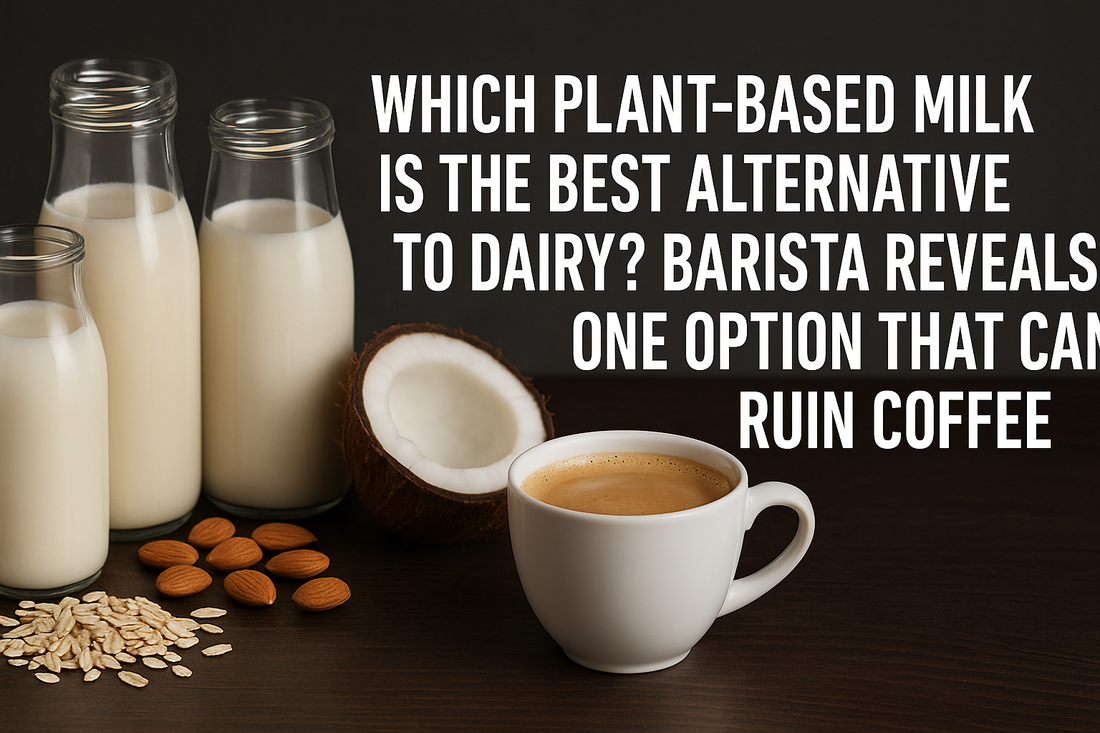
Which Plant-Based Milk Is the Best Alternative to Dairy? Barista Reveals One Option That Can Ruin Coffee
正啟 GLOBALEYESShare this news
A Growing Variety of Non-Dairy Choices
To meet rising demand, many coffee shops now offer a wide range of milk alternatives—oat milk, almond milk, and even hemp seed milk among them. According to a report by the Daily Mail, plant-based milk brand Alpro notes that having so many non-dairy choices is a positive development. In fact, research shows that 48% of coffee drinkers in the UK use plant-based milk in their coffee. However, not all of these alternatives are well-suited to complement coffee.

The Barista’s Warning
Hunter Wren Miele, a barista with 12 years of experience in New York, wrote on the culinary site Tasting Table about which plant-based milks to avoid adding to coffee. She explains that certain ingredients can overshadow the natural sweetness, smokiness, or aroma of coffee—effectively ruining the drink and leaving nothing but a sad aftertaste. From Miele’s expert point of view, coconut milk is the number one plant-based milk to skip when it comes to coffee.

Coconut Milk: A Distinct Tropical Flavor
Miele points out that coconut milk’s strong, tropical flavor can easily overpower the nuanced taste of coffee. While coconut milk may be perfect for curries or fruit smoothies, it often masks a coffee’s original character. Moreover, coconut milk tends to be higher in fat and carbohydrates, yet lacks the nutritional benefits that some other plant-based milks provide. A single serving of coconut milk can contain nearly one-quarter of the recommended daily saturated fat intake for adults.

Nutritional Concerns
Nutritionist Clarissa Lenherr notes that although carton-packaged coconut milk is more diluted than the canned variety, it still has a higher fat content compared to certain other plant-based milks and offers very little protein. In comparison, one cup of skim milk contains about 8 grams of protein, while the same amount of coconut milk contains virtually none. Lenherr adds that coconut milk is also challenging for baristas to foam, making it a poor choice for lattes.

Popular Yet Polarizing
Despite these criticisms, some coffee lovers remain unconvinced. Market research from Fortune Business Insights predicts the global coconut milk market will grow to $3.3 million by 2032, and Ipsos reports that coconut milk is the third most popular choice among Britons (17%), trailing only almond milk (22%) and oat milk (20%). Along with coconut milk, Miele also lists rice milk as a second option to avoid adding to coffee.

Rice Milk: Thin Consistency and Higher Arsenic
People with multiple allergies (to nuts, dairy, soy, etc.) often turn to rice milk as a safe alternative. While Miele agrees that rice milk works well in smoothies or cereals, she believes it “does absolutely nothing” for coffee. The best coffee milks are thick and creamy, while rice milk is thin and watery. Like coconut milk, it doesn’t foam well and can be problematic for baristas making lattes or cappuccinos.

Dilution and Acidity
Rice milk is primarily water mixed with ground rice, offering a mild flavor with natural sweetness. However, when added to coffee, it simply dilutes the drink and can introduce a sour note. Another concern is that rice milk can have a higher arsenic content than other plant-based milks, so children under five are generally advised not to consume it.

Whether you’re exploring non-dairy milks for health reasons, dietary restrictions, or simply personal preference, it’s essential to consider both flavor compatibility and nutritional factors. While coconut milk and rice milk may be perfect for certain dishes or beverages, you may want to think twice before adding them to your coffee.

